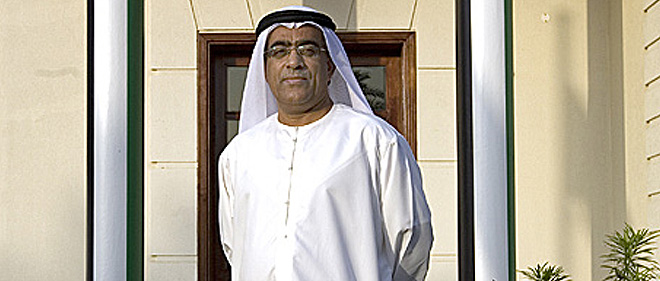Federation is on right track for London’s 2012 Games
Two years before the creation of the UAE’s Athletics Federation (UAEAF) in 1976, Ahmed al Kamali – the body’s current president – and a handful of like-minded track and field enthusiasts formed an association. The coming together, just three years after the formation of the country itself, resulted in a group with no authoritative clout. But that was not the objective. Rather, al Kamali’s clan of kindred spirits – sharing the urge to establish a vehicle which could govern their universal passion, athletics – simply wanted to get the ball rolling.
Fast forward 35 years, and al Kamali is still driven by that same indeterminable desire and ambition; he is also the UAEAF’s sixth president. His mission is to institute professionalism in a previously meandering system; to steer a rudderless ship which, until last year, was so at sea the country was blacklisted by the International Association of Athletics Federations (IAAF). Rebuilding the UAE’s inter- national reputation, however, required attention far beyond activities on the track itself. First of all, according to al Kamali, the love needed to be put back in.
“When I took over the federation we had no members in the GCC, Arab or Asian bodies. Apart from the technical aspects, we had much administrative work to do,” said al Kamali. “If you love it and are interested, you can double up and do a lot of things. But if you are not keen and you don’t know how to develop things, then they simply won’t happen.” As he strives to evolve domestic athletics, al Kamali is harnessing a lifetime of passion and three and a half decades of knowledge and contacts. He is getting the job done.
“I’ve worked with every federation president since the beginning, I can name all the coaches, I was an athlete – I think all this has maybe helped me,” he said. “We now have our members in the important committees and can focus on the technical aspects of improving performance. When I started we had two coaches, now we have 12. We are changing everything.” Change, it seems, has been the motto of al Kamali’s first 15 months as president. “We are changing the mentality of our staff, our results, our programmes, our behaviour with other federations, our relations with the IAAF and International Olympic Committee – everything. We are moving forward,” he said.
Unarguably, al Kamali has changed the course of domestic athletics. He has introduced order, duty and organisation. With key administrative foundations in place, he is now planning for the long term. It is a working agenda which seeks immediate gains, but within the guidelines of solidifying future momentum. The result is a rigorously selected group of 57 elite athletes, each of whom has a tailored programme. The project’s goal is to maximise qualification for the London Olympics in 2012.
“In athletics, you cannot do things quickly. You need many months, years, and it is long process,” said al Kamali. “You have to work with the kids and prepare them. We are concentrating on the events where we can do something – we are preparing 57 male athletes in different disciplines.” Despite the implementation of a far-reaching programme designed to increase Olympic medal-winning chances, al Kamali insists raising standards remains the primary objective.
“It’s not easy – the whole world is fighting for these medals,” he said. “In previous Olympics, our athletes have always been wildcards. Now we are going for qualification. “We’ve already created national history by qualifying two athletes for the world championships [in Berlin in August]. That was in our programme. The next step is having four at international standard by 2010, six the year after, and eight for the Olympics. I promise the public six to eight UAE athletes will qualify for London.”
It’s a long journey, and al Kamali is carefully using hand-picked tools – as well as various local, regional and international championships – to monitor progress. “There are no shortcuts. We have to make sure our athletes are satisfied and pleasing us, or else we will go into a dark tunnel. It is important to know where we are,” he said. After a 12-medal haul at this year’s GCC Games, the UAE’s weakened 12-man squad won four medals at last week’s Arab Athletics Championships. Next up are two Asian championships, in Vietnam and China, before the end of the year. It’s all about building gradually for the Asian Games in 2010, and London two years later.
“Whatever support we need to bring good things to UAE athletics, it is there,” said al Kamali. “We have taken the next step and we have the support to keep reaching. Our current team is hungry and they are setting example for the kids to follow.”



